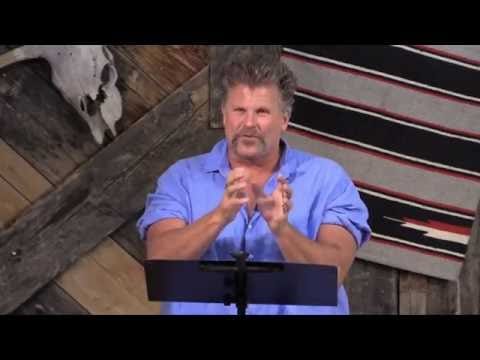
3 John Bible Teaching
Shawn's teaching on 3rd John highlights John's personal letter to Gaius, emphasizing truth, love, hospitality, and addressing issues with Diotrephes.

Shawn's teaching on 3rd John highlights John's personal letter to Gaius, emphasizing truth, love, hospitality, and addressing issues with Diotrephes.

2 John and 3 John, once debated for brevity and personal tone, were canonized due to early church support. They warn against heresies, emphasize love, truth, and caution against aiding deceivers.

Shawn's teaching on Acts 10:13-28 highlights Peter's vision challenging Jewish dietary laws, emphasizing the Spirit over the Law, inclusivity, and universal love.

John and Shawn discuss sin, distinguishing between non-deadly sins, which can be prayed for, and "sin unto death," linked to denying faith in Christ. They emphasize prayer, understanding through Jesus, and guarding against idolatry. Shawn highlights the divine order in resurrection and the importance of acknowledging Jesus' divine nature.

Acts 10 highlights the Gospel's inclusivity, breaking Jewish-Gentile barriers. Cornelius, a devout Gentile, exemplifies sincere faith. Shawn stresses discreet prayer and giving.

Shawn's teaching highlights the Bible's spiritual value despite textual flaws, critiques inerrancy, emphasizes ongoing faith, and underscores prayer aligned with God's will.

Shawn's teaching highlights Saul's transformation to Paul, his challenges post-conversion, Barnabas' support, Peter's miracles, and the spread of Christianity despite opposition.

Shawn contrasts Saul's transformation and Ananias's hesitation, emphasizing commitment to Christ, God's non-discriminatory love, and individual roles in His plan. Saul's conversion highlights sincerity, spiritual transformation, and effective preaching, showcasing faith's transformative power.

John's teaching highlights faith as key to overcoming worldly desires, emphasizing Jesus' example of humility and service. Faith in Jesus is essential, contrasting with other spiritual paths.

Saul's conversion to Paul highlights humility, faith, and transformation after encountering Jesus. His journey emphasizes seeking God's will, walking by faith, and divine guidance.

The teaching explores love in 1 John 4:19, emphasizing love as a response to God's initial love. It discusses love's evolution from gratitude to unconditional, reflecting divine love. True agape love for God and others is central, manifesting in keeping commandments and loving others. Jesus as the Anointed One signifies salvation, and true belief results in love akin to family. Loving God involves manageable commandments, leading to liberation and joy. Selflessness leads to peace, contrasting with chaos from sinful desires. True freedom is in serving God, not worldly pleasures.

The Transition in the Early Apostolic Church WelcomePrayerMusicSilenceActs 9.1-5July 10th 2016Milk Okay, we are now stepping into a very significant transition not only in the early apostolic church, not only in the Book of Acts, but in relation to Christianity worldwide…

The teaching emphasizes agape love from God, shown through Jesus, urging believers to love others, expelling fear, and reflecting God's presence, challenging exclusivity of divine love.

Shawn's teaching stresses discerning God's truth, testing spirits, recognizing Jesus' incarnation, and agape love as proof of God's presence, countering false teachings.

Philip, led by the Spirit, guides an Ethiopian eunuch reading Isaiah, leading to his baptism. This highlights divine guidance, spiritual responsiveness, and the Gospel's spread.

Peter warns against bitterness and sin, likening them to poison and chains. Shawn emphasizes overcoming fear and idolatry through spiritual warfare and God's guidance.

John: Love through Christ's sacrifice, emulate in deeds. Shawn: Love in actions, faith with deeds. True Christianity: Active faith, love-in-action. Faith leads to love.

Shawn's teaching on 1 John 3:11-19 highlights love in action as key to being God's child, contrasting envy with Christian love, and emphasizing selflessness and faith.

Simon's story in Acts 8 questions "once saved always saved," showing belief and baptism aren't enough if faith falters. Apostles gave Holy Spirit gifts, not bought, for early church growth.

Stephen's martyrdom led to Christian dispersion, spreading faith despite persecution. Philip's preaching in Samaria, Simon's conversion, and Saul's transformation highlight adversity's role in faith's growth. Shawn emphasizes God's plan, adversity's purpose, and believers' empowerment through the Holy Spirit.

Sin is law transgression; Jesus fulfilled the law, freeing believers from sin. Faith in Christ, not law adherence, grants righteousness. God's children embody love, not sin.

Shawn highlights Jesus's universal mission beyond Jews. Paul explains Israel's role in Gentile salvation, bridges Jewish-Gentile worlds, and spreads Christianity despite persecution.

Believers have an internal anointing from the Holy Spirit, guiding them in truth and righteousness, resisting deception, and preparing for Christ's return by living justly and lovingly.

John's teaching stresses truth, warns against antichrists, and emphasizes faith in Jesus for eternal life. Believers should remain in original teachings and avoid deception.

Stephen critiques temple reverence as idolatry, calls leaders "stiff-necked," highlights rejection of prophets, and emphasizes spiritual over earthly lineage. Shawn stresses humility, Holy Spirit's power, and Stephen's prayer as legitimate, linking to Romans 10:12-14.

Stephen's sermon highlights God's transcendence beyond physical temples, emphasizing spiritual worship. David's life foreshadows the Messiah, while Solomon builds the temple. Temples symbolize spiritual realities, with believers as living temples. True worship is in spirit and truth, not confined to physical structures.

John warns of many antichrists as signs of the last times, urging believers to remain in Christ's teachings. Shawn interprets "last time" as the end of the Jewish age, not the world.

Shawn's teaching on 1 John 2:12-17 highlights spiritual maturity levels: children (forgiveness), young men (strength, overcoming evil), fathers (deep understanding), and warns against worldly desires.

Stephen's speech in Acts 7 emphasizes Moses receiving the Law, the Israelites' idolatry, and the concept of "ekklesia" as a global gathering of believers.

Believers must love one another, reflecting Christ's light and truth. Love is both an old and new commandment, essential for spiritual growth and avoiding darkness.